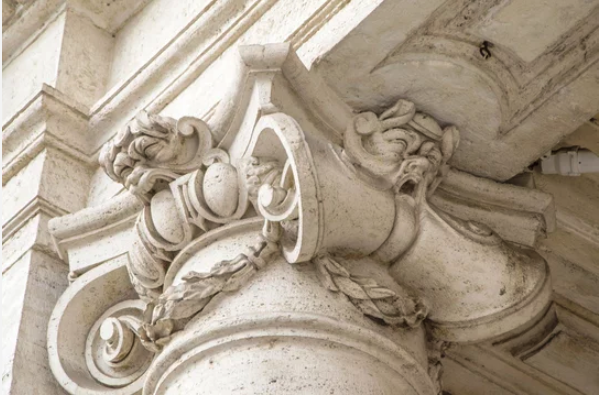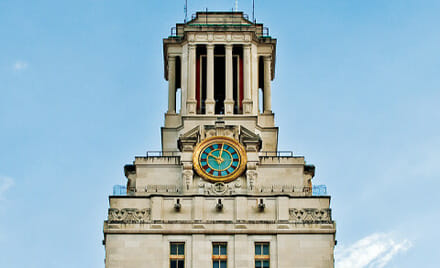This week in diplomatic and military history: November 10
Cyrus Huncharek | Nov 10, 2014
The events of the Fourth Crusade do not differ entirely from our own. An ideological battle in the Middle East transforms into a venture for money and power in a region prone to instability. The capture of the Catholic town of Zara and the sacking of Constantinople by the Crusaders demonstrates how financial motivations can alter original intentions. These events from the past serve as a caution to reevaluate policy towards the current conflicts in the Middle East, specifically the War on Terror, and the threats posed by the Islamic State.
In the early 13th century the world was split between the Christian West and the Islamic East. The result was an ideological battle waged in Europe and the Middle East that brought ruthless battle and bloodshed to the region. The Fourth Crusade was launched in 1202 at the behest of Pope Innocent III, who decreed that a recapturing of the Holy Lands from the forces of Islam was a spiritual necessity. The Crusader’s objectives were aimed at recapturing Jerusalem; however, a series of events occurred that resulted in the Catholic crusaders invading the Catholic town of Zara in present-day Croatia, and then continuing on to sack Constantinople, the greatest city in the Christian world and the seat of Greek Orthodox Christianity.
To understand the Siege of Zara and the Fourth Crusade as whole one must understand the financial agreement with the Venetian Republic. The knights of the Fourth Crusade were in need of ships and equipment in order to transport them to the Holy Lands. The Crusaders and Pope Innocent III agreed to a deal with the Venetians stipulating that the Venetians would build a fleet of ships for a crusader force of 33,500 who would pay 84,000 marks of silver for the armada. In the late spring of 1202, crusaders began to arrive in Venice, their port of departure for their mission. Once the Crusaders landed in Venice, the Venetians expected full payment for the armada they had spent time, money, and resources building.
As the crusaders arrived in Italy, it became apparent that the estimated force of 33,500 men was not going to arrive; indeed only some 10,000 men were battle-ready, far short of the force agreed upon. The situation became increasingly difficult for the Venetians because they had halted the development of their own commercial activity in order to fulfill the armada order placed by Pope Innocent III. The Venetians lost money by halting their commercial operations and thus demanded the 84,000 marks be paid or there would be no crusade. The success of the Fourth Crusade was momentarily stalled due to an unfulfilled contract rather than an ideological issue. This type of agreement is similar to modern-day defense contracts, demonstrating their origins as far back as the Crusades. In this case, the unfulfilled contract needed renegotiating in order for the crusade to continue.
The crusaders and the Venetians returned to the negotiating table to decide the fate of the crusade. The Fourth Crusade was saved by a controversial offer made by the crusaders, beginning with the siege of Zara and ending with the sack of Constantinople. The crusaders offered to assist the Venetians in capturing Zara in return for suspension of payment for the armada. The significance of Zara to the Venetians was mainly due to its economic and strategic significance, but also because of a past revolt against the Venetians. This deal was controversial because the crusaders agreed to lay siege to a Catholic city, which would usually be considered sacrilegious at a time when a religious war was being waged against the Muslims. Naturally, many of the crusaders felt that this agreement was unholy since it required waging war against fellow Christians; nevertheless, the crusaders and the Venetians came to an agreement and launched their campaign against Zara.
On November 10, 1202, the crusader fleet reached Zara. After a fourteen-day siege, the city fell to the crusading armies. Throughout the battle many knights deserted. Upon hearing the news of the siege, Pope Innocent III excommunicated the Venetians and then threatened to excommunicate the entire force of crusaders. However, this did not happen and the crusaders remained in Zara for the winter. Once weather conditions improved the Fourth Crusade continued, leading to the eventual sack of Constantinople.
While the Fourth Crusade occurred centuries ago there are insights to modern military and diplomatic situations in the Middle East, as well as the struggle against terrorism. The Crusades were initially military engagements motivated by religious ideology; however, it did not remain an ideological war for long. The Fourth Crusade demonstrates how military entanglements can shift from an ideological conflict to a materialist conflict. Today, the United States is involved in what appears to be an ideological battle between Western values and fundamental Islam in the Middle East. However, is the war merely ideological? The War on Terror was never about one cause, and financial incentives can be just as important as military and security concerns. The Islamic State has captured oil refineries in Iraq that report earnings of about $1 million a day. The Taliban in Afghanistan controls one of the largest opium markets in the world, and brings in millions of dollars a year for the organization. One must step back and examine the entire situation at a deeper level. Upon further examination it becomes apparent that there are motives that were not initially considered. The Fourth Crusade began with the goal of preserving Christendom in the Holy Land, but shifted to suit alternate agendas. Similarly, terrorist organizations, ostensibly motivated by ideology, are shifting to non-ideological agendas.
Photo courtesy of Wikimedia Commons.
Works Cited
“Siege of Zara”. Encyclopædia Britannica. Encyclopædia Britannica Online.
Encyclopædia Britannica Inc., 2014. Web. 20 Oct. 2014
Filkins, Dexter. “Poppies a Target in Fight Against Taliban.” New York Times 28 April 2009. Web.
“Fourth Crusade.” Historynet. n.p. Web. 20 Oct. 2014.
Al-Khatteeb, Luay. “How Iraq’s black market in oil funds ISIS.” CNN 22 August 2014. Web.




